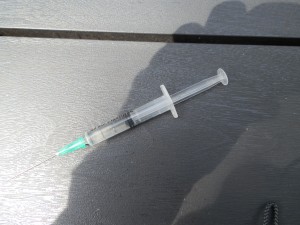We resist differently to viruses, to bacteria growing inside us, to microbes and to the nature aggressions: mugs, wasps, flees and ticks. Our immunity system rules this automatically. However, a voluntary kick is sometimes useful: vaccine, etc.
In all what we do, there are weaknesses. It’s also the case with our information. Because it’s not sufficiently managed – and protected when and how it should – we suffer from problems.
Identifying these weaknesses – that specialists call ‘vulnerabilities’ – and reviewing our way of doing is equivalent to the vaccine, grogs and others. They improve our immunity to problems.
Let’s see – or review – some immediate actions, that are easy and effective.
Why working this way?
First, the risk management process might be too heavy for your situation. Second, you have to bear in mind that the question isn’t ‘if’ you will be victim of ann attack, but ‘when’ – and more and more frequently, even you didn’t yet discover it, ‘for how long’.
Acting as I advise you will put you in a much better situation, the time for you to look what you have to add.
Becoming not invulnerable but less vulnerable is already an important step. The good practices references contain these solutions that make you feel safe
- either from attacks
- or form disastrous consequences.
What to do to boost your immunity?
- Answer the questions presented last week.
- Learn to manage your Top 3/5/10 information.
- Give it an objective value.
- Put in place a series of simple and effective solutions.
Simple solutions
- Isolate the information of higher value from the others (this information for which the ‘cold-chain’ may not be interrupted) et store them in a safe
- If it’s physical, make sure the key is away from curious hands,
- If it’s numeric, consider encryption.
- Implement an access control system
- Give only access to these how really need it, specifying the conditions,
- Protect your ‘Office’ documents with a password – obviously not the same you use to access your computer.
- Make a regular back-up of your valuable information
- Make a digital copy of your paper documents (including ou family pictures if necessary!),
- Make a safety copy of your software (the license is always costly!),
- Keep your backups at another place than your computer,
- Regularly verify your information is still readable and usable, and ‘give it colours again’ by refreshing the memory.
- When you refer to an important document (e.g. to make a decision), make yourself sure of its integrity
- Either by comparing it with the backup,
- Are all the sheets present?
- Are they manual corrections?
- Or add an integrity control
- Make a ‘picture’ backup (.jpg or .pdf if no other possibility)
- Use a ‘hash’ function some cryptographic products allow.
- Either by comparing it with the backup,
A ‘hash’ is a sort of ‘compressed summary’ of your file, which is stored with it. When retrieving the document, the computation is done again automatically and compared with what’s in memory. In case of a difference you are informed that the documents had been corrupted.
- Store papers, computer and back-ups in a safe physical place whose
- You control the access to,
- Protection against intrusion, fire, floods and short-circuits – give you full confidence.
Conclusion
This is obviously only a starting point. It should already create an immunity much better than your neighbour.
Then, ask yourself, loud and preferably in writing, what you absolutely won’t want to happen to this information and its exploitation.
After that, look for what, concretely, can render these scenarios possible and take the simplest and most pragmatic measures – except ‘doing nothing’ – to put you in a safer position.
ACT before it’s too late!
Did this approach bring some positive results? What did you add to it? Share your discoveries with the others as you can help a lot of people.
See you soon, safer with your information.
Jean-Luc
Google+
